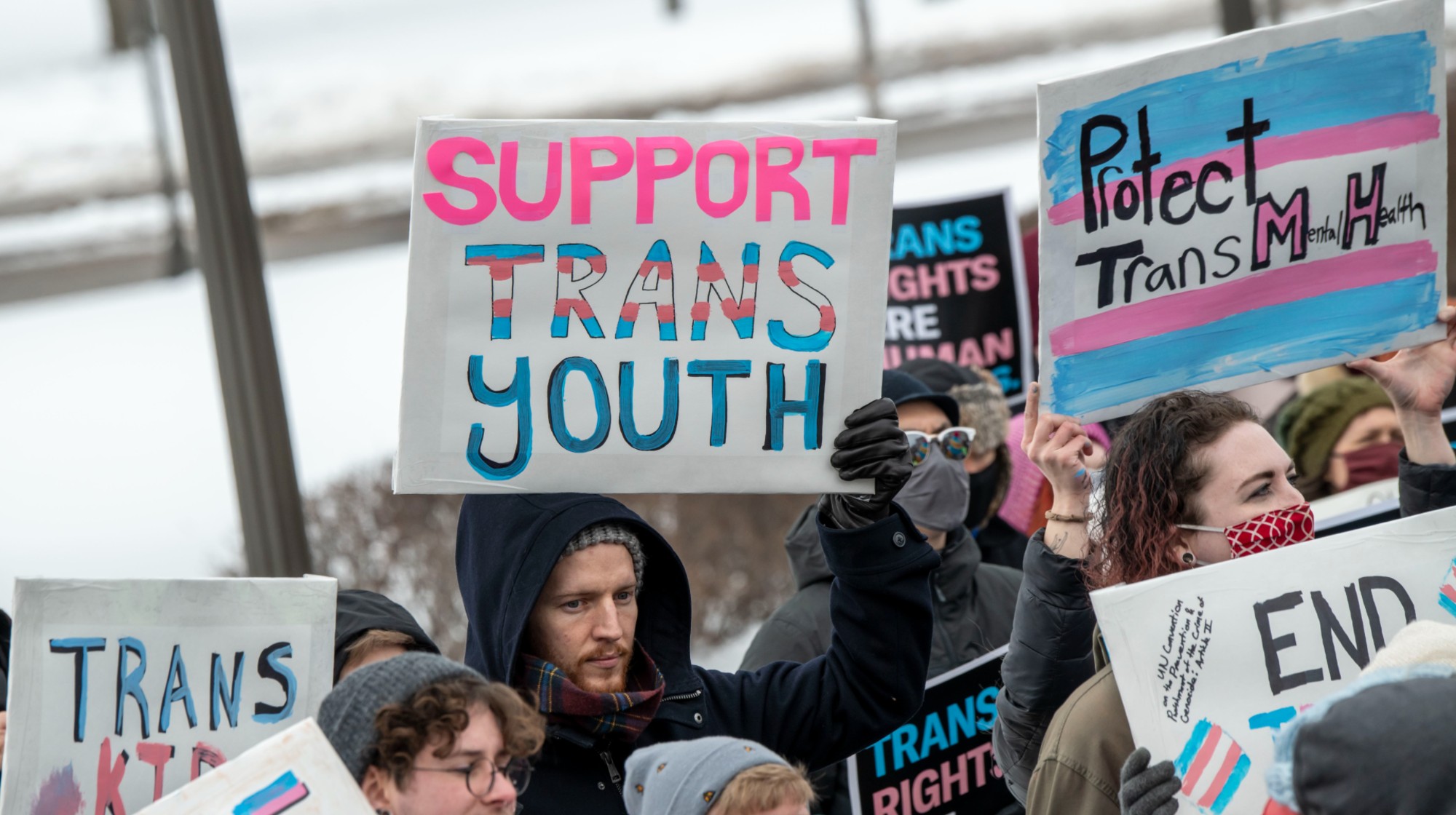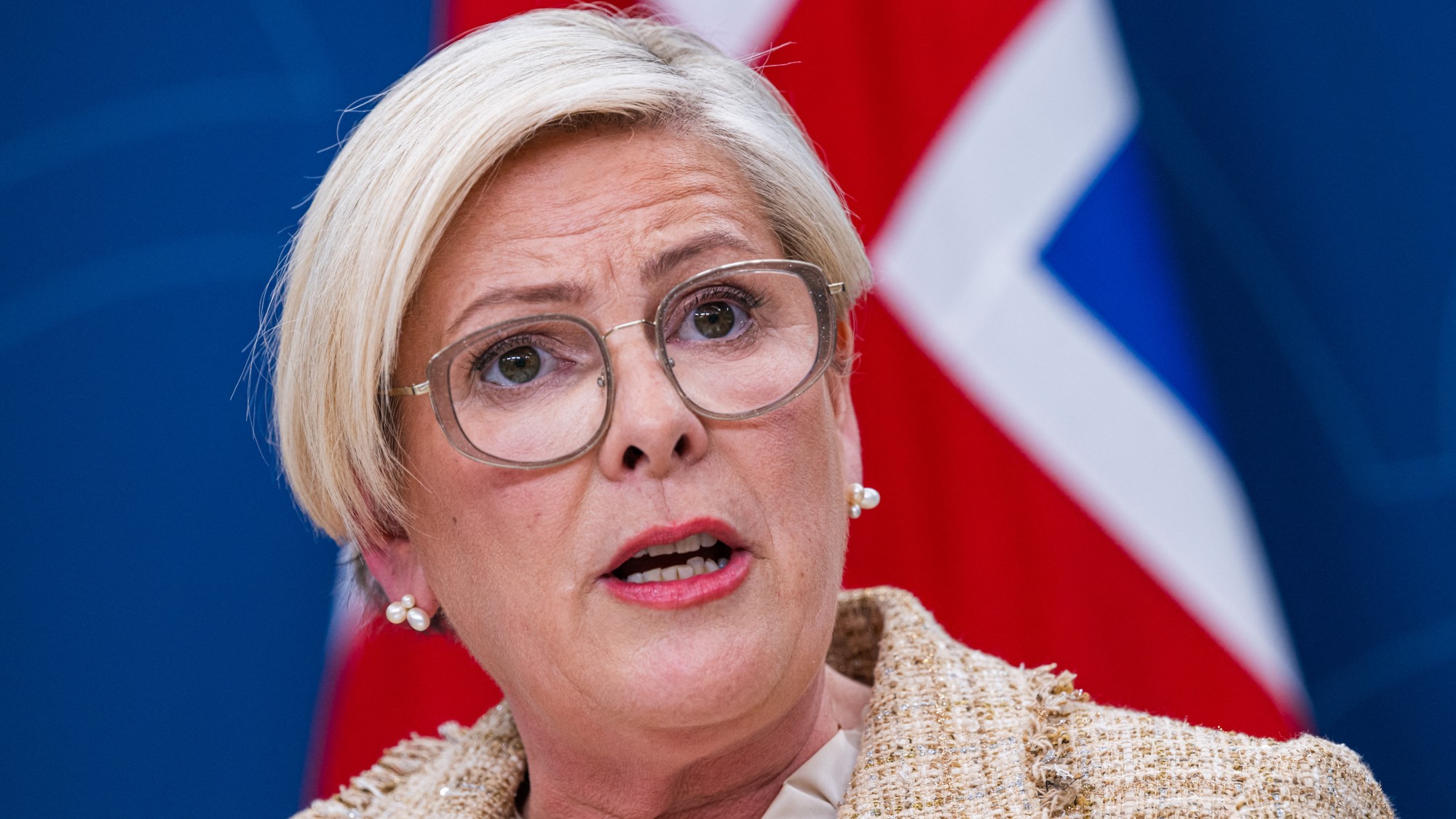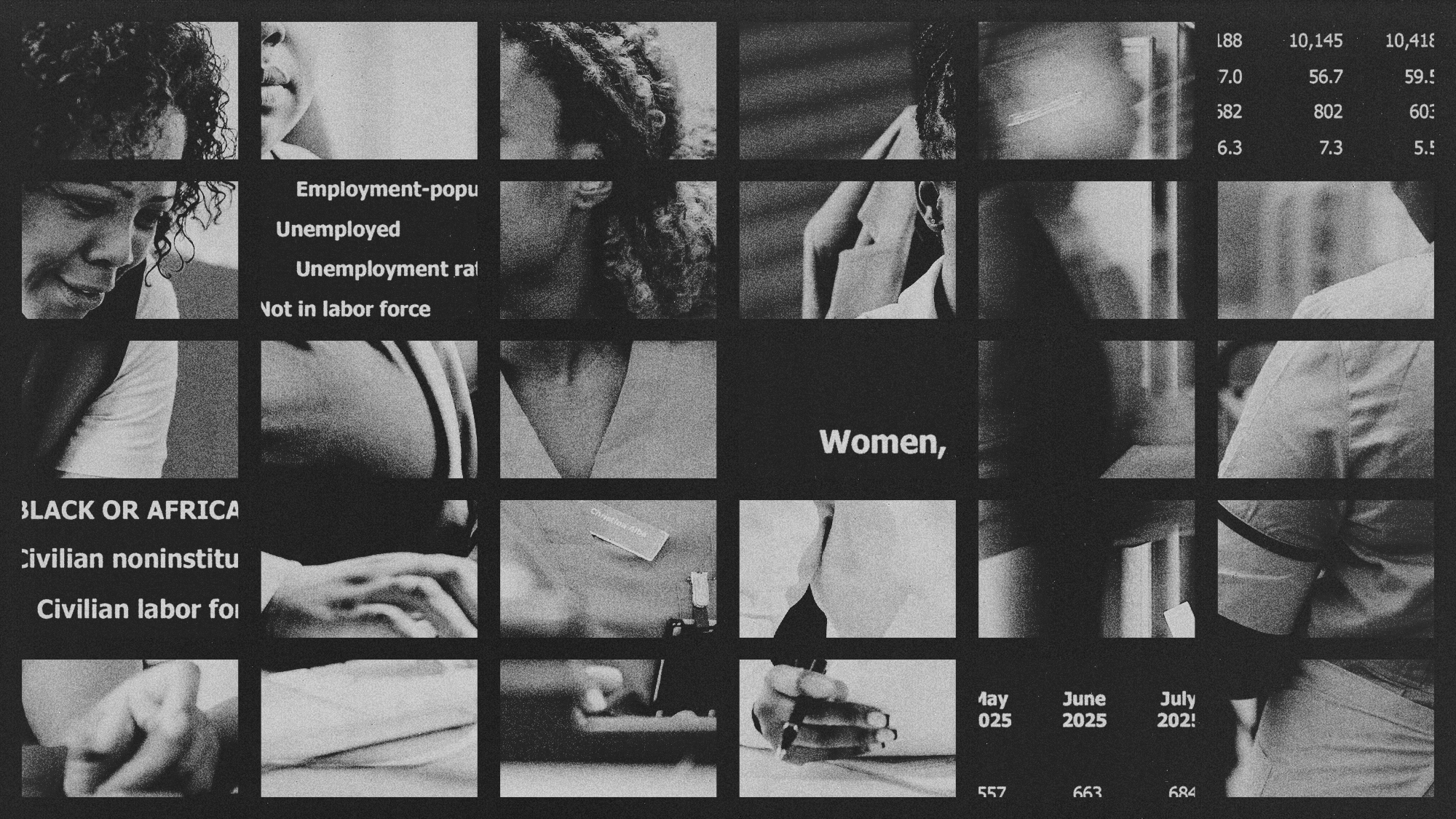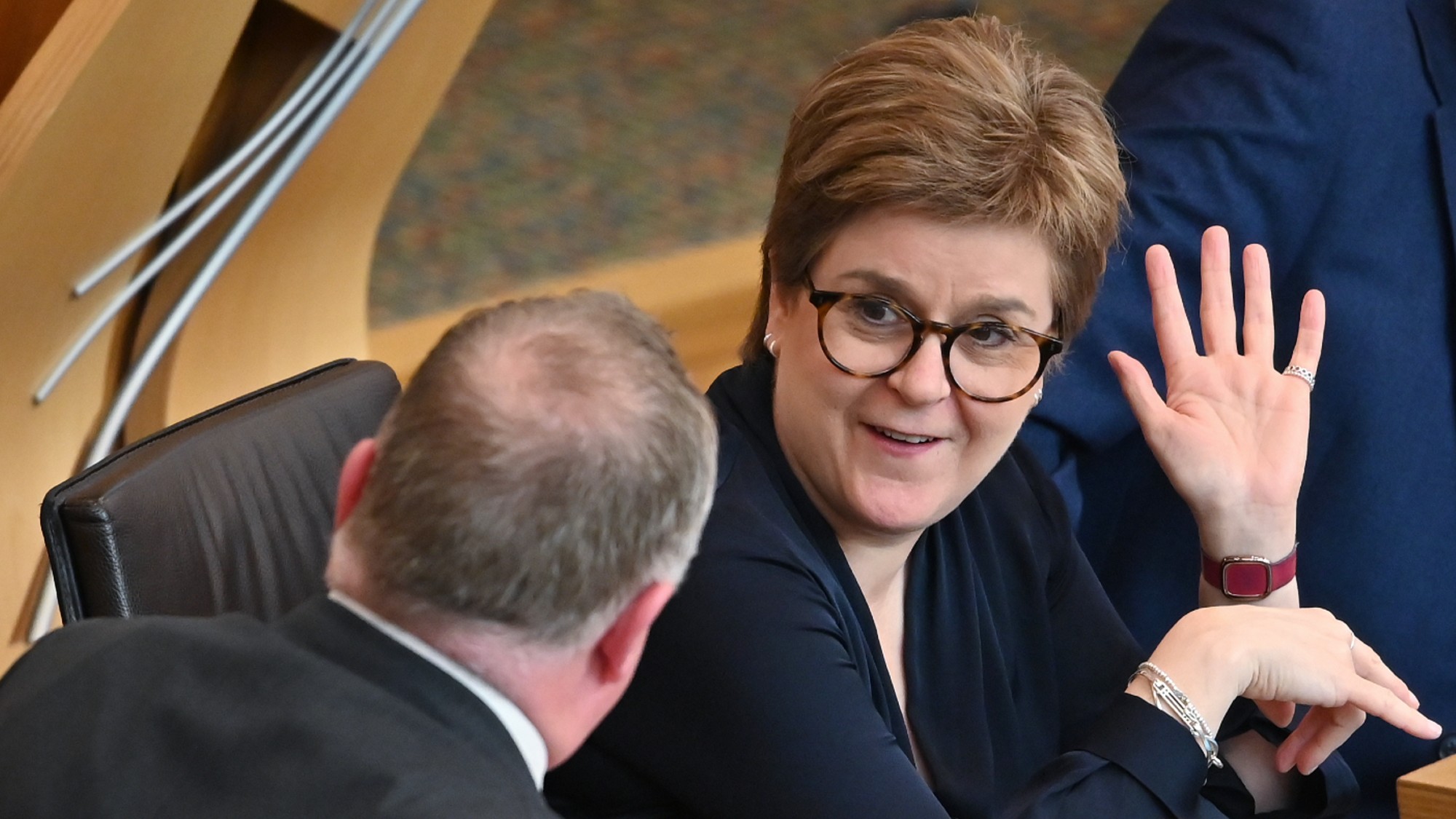Scottish court rules UK government veto of Holyrood gender reform bill was lawful
Constitutional ruling disappoints LGBTQ+ campaigners but offers a boost to Rishi Sunak

A free daily email with the biggest news stories of the day – and the best features from TheWeek.com
You are now subscribed
Your newsletter sign-up was successful
A judge in Scotland has declared that the UK government acted lawfully in blocking Holyrood's gender recognition reform bill.
Legislation introducing a self-identification system to allow people to change their legally recognised sex was passed by the Scottish Parliament late last year.
But in January Scottish Secretary Alister Jack used section 35 powers from the Scotland Act 1998 – the legislation that established the Scottish Parliament – for the first time to stop the bill receiving royal assent, over fears it would impact on UK-wide equalities laws.
The Week
Escape your echo chamber. Get the facts behind the news, plus analysis from multiple perspectives.

Sign up for The Week's Free Newsletters
From our morning news briefing to a weekly Good News Newsletter, get the best of The Week delivered directly to your inbox.
From our morning news briefing to a weekly Good News Newsletter, get the best of The Week delivered directly to your inbox.
Now in a ruling that The Guardian said will "disappoint LGBTQ+ campaigners and offers a boost to Rishi Sunak at the end of a difficult week", Lady Haldane at the Court of Session in Edinburgh rejected the Scottish government’s petition to rule the UK government’s section 35 veto as unlawful.
While the challenge to the veto failed, Haldane said that "in so concluding it is important to recognise the novelty and complexity of the arguments and the sophisticated manner in which those arguments were presented before me and from which I derived considerable assistance".
Jack welcomed the decision. "I was clear that this legislation would have had adverse effects on the operation of the law as it applies to reserved matters, including on important Great Britain-wide equality protections," he said.
But Colin Macfarlane, director of nations at LGBTQ+ charity Stonewall, said the organisation was "disappointed" with the ruling. "This unfortunately means more uncertainty for trans people in Scotland, who will now be waiting once again, to see whether they will be able to have their gender legally recognised through a process that is in line with leading nations like Ireland, Canada and New Zealand."
A free daily email with the biggest news stories of the day – and the best features from TheWeek.com
The Scottish government "has the right to appeal the case further through the Scottish courts, and ultimately to the Supreme Court in London", said Sky News.
Jamie Timson is the UK news editor, curating The Week UK's daily morning newsletter and setting the agenda for the day's news output. He was first a member of the team from 2015 to 2019, progressing from intern to senior staff writer, and then rejoined in September 2022. As a founding panellist on “The Week Unwrapped” podcast, he has discussed politics, foreign affairs and conspiracy theories, sometimes separately, sometimes all at once. In between working at The Week, Jamie was a senior press officer at the Department for Transport, with a penchant for crisis communications, working on Brexit, the response to Covid-19 and HS2, among others.
-
 Quiz of The Week: 14 – 20 February
Quiz of The Week: 14 – 20 FebruaryQuiz Have you been paying attention to The Week’s news?
-
 The Week Unwrapped: Do the Freemasons have too much sway in the police force?
The Week Unwrapped: Do the Freemasons have too much sway in the police force?Podcast Plus, what does the growing popularity of prediction markets mean for the future? And why are UK film and TV workers struggling?
-
 Properties of the week: pretty thatched cottages
Properties of the week: pretty thatched cottagesThe Week Recommends Featuring homes in West Sussex, Dorset and Suffolk
-
 ‘Implementing strengthened provisions help advance aviation safety’
‘Implementing strengthened provisions help advance aviation safety’Instant Opinion Opinion, comment and editorials of the day
-
 ‘Space is one of the few areas of bipartisan agreement in Washington’
‘Space is one of the few areas of bipartisan agreement in Washington’Instant Opinion Opinion, comment and editorials of the day
-
 Trump HHS moves to end care for trans youth
Trump HHS moves to end care for trans youthSpeed Read The administration is making sweeping proposals that would eliminate gender-affirming care for Americans under age 18
-
 The Icelandic women’s strike 50 years on
The Icelandic women’s strike 50 years onIn The Spotlight The nation is ‘still no paradise’ for women, say campaigners
-
 Taking the low road: why the SNP is still standing strong
Taking the low road: why the SNP is still standing strongTalking Point Party is on track for a fifth consecutive victory in May’s Holyrood election, despite controversies and plummeting support
-
 Black women are being pushed out of the workforce en masse
Black women are being pushed out of the workforce en masseIN THE SPOTLIGHT Employment data shows hundreds of thousands of Black women have left the labor market over the past few months. What's behind this mass exodus?
-
 Nicola Sturgeon's memoir: making the personal political
Nicola Sturgeon's memoir: making the personal politicalTalking Point Former Scottish first minister attempts to set record straight in 'Frankly' but does she leave more questions than answers?
-
 Anti-trans scandal roils major LGBTQ+ literary prize as authors withdraw en masse
Anti-trans scandal roils major LGBTQ+ literary prize as authors withdraw en massein the spotlight Multiple nominees for the UK's premier queer writing award have removed themselves from contention to protest the inclusion of a self-proclaimed 'trans-exclusionary radical feminist' in their ranks